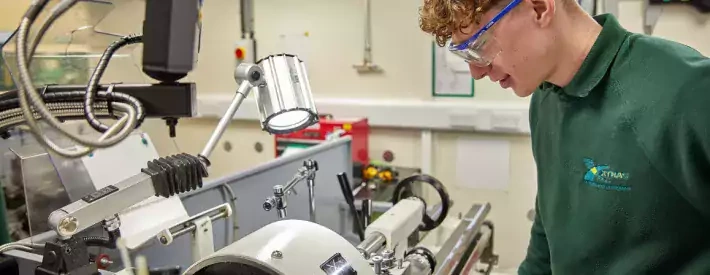Why technical education is an economic imperative for everyone

The landscape of education has always been dynamic, bending and swaying with the socio-economic winds. The challenge, however, remains constant: how do we mould our curriculum to best equip the next generation? The Baker Dearing Trust has emerged as a loud and clear voice in this discussion, offering a potent blueprint for the future of British education.
In a recent manifesto published to coincide with this year's party conferences, the Baker Dearing Educational Trust, which fervently supports 44 University Technical Colleges (UTCs) across the UK, laid out its vision. Their intent is clear and resonates with urgency - prioritise technical education to combat the UK's lingering productivity crisis.
Technical skills are key to the future
Data from the House of Commons Library reveals a concerning trend. Post 2008-2009 recession, the UK witnessed a stagnant growth in productivity, a slump that has been exacerbated by the global COVID pandemic. This is more than just a statistic; it’s a reflection of a nation's potential being underutilised. With industries evolving rapidly in the age of AI and digital transformation, it's imperative that the workforce isn't just large but also technically adept.
The four pillars
The Trust’s manifesto is underpinned by four pivotal recommendations:
- Emphasis on Employability for Pre-16 Curriculum: Gone are the days when theoretical knowledge was enough. The Trust believes that a curriculum should go beyond theory, preparing students for the actual challenges of the job market.
- Integration, not Replacement, of T-Levels: Instead of sweeping changes that replace existing structures, the Trust suggests refining and augmenting the current system. T-Levels, they argue, should complement, not substitute existing qualifications.
- Adequate Funding for Technical Education: It's one thing to recognise the importance of technical education and another to adequately fund it. The Trust calls for a bolstered financial commitment towards pre-16 technical education subjects.
- Incorporation of UTC Provisions: One of the Trust's most innovative proposals is the incorporation of UTC provisions within conventional schools. This could be the bridge between traditional educational practices and modern technical necessities.
The role of UTCs
University Technical Colleges, supported by the Baker Dearing Trust, have always been at the vanguard of this movement. With backing from local enterprises and esteemed universities, UTCs offer students a blend of technical acumen and indispensable employability skills. Their curriculum is a far cry from the conventional, as proven by the disturbing decline in the mainstream school system. Entries into courses like design and technology, digital qualifications, and creative subjects have seen drastic drops since 2010. The Baker Dearing Trust argues that reversing this trend is the antidote to the productivity ailment the UK faces.
Looking ahead
The Trust's advocacy doesn't merely stem from a place of theoretical idealism; it's grounded in practical realities. Today's students, the workforce of tomorrow, are acutely aware of the myriad paths before them. Not every road leads to a traditional university. Many are intrigued by apprenticeships, captivated by technical subjects, and keen on direct employer engagement. By capitalising on this enthusiasm, we might not just be solving an educational conundrum but addressing a national economic challenge.
The Baker Dearing Trust offers us much to ponder. Prioritising technical education isn't just an educational reform; it's an economic imperative. The Trust's vision, if heeded, could be the compass that guides the UK into a future of unparalleled productivity and innovation. For IMI members, understanding and championing this vision might be our shared responsibility and legacy.
Hayley Pells is Policy and Public Affairs Lead at the Institute of the Motor Industry




